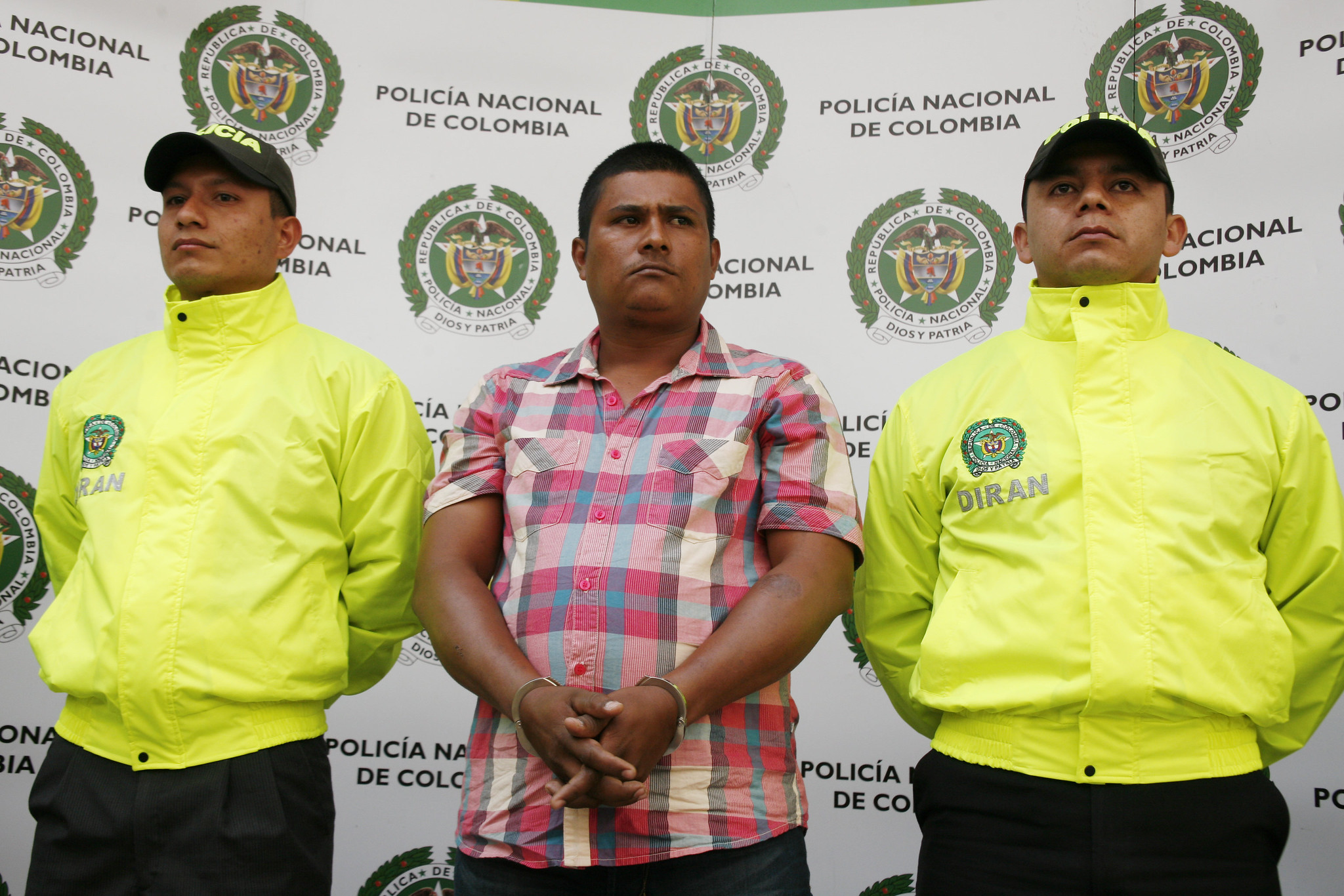
The Colombian Police capture high-level figures in the Gulf Clan.
“The illegal armed group carried out an armed strike between May 5 and May 9, 2022. It is estimated that 24 homicides occurred, in addition to the incineration of nearly 200 vehicles to block roads.”
In November 2021, Colombian security forces arrested Dairo Antonio Úsuga, otherwise known as “Otoniel,” the leader of the Gulf Clan and the most wanted drug trafficker in the country. Colombian President Iván Duque declared at the time that this was “the most important blow of this century against drug trafficking in Colombia” (see: “Colombia Celebrates the Arrest of Major Drug Trafficker ‘Otoniel’,” OE Watch, December 2021). However, in early May, the Gulf Clan shut down wide swathes of northern Colombia, declaring an “armed strike,” according to Colombia’s leading weekly magazine Semana. The strike, which lasted four days, was a direct response to the Colombian government’s decision to extradite Otoniel. The government was slow to react, but eventually sent several thousand troops and police to intervene and lift the strike. According to Colombia’s left-leaning daily El Espectador, the strike resulted in 24 homicides and hundreds of burned cars used to block highways. It also exacerbated Colombia’s supply chain challenges. Finally, the strike demonstrated the enduring power of cartels in Colombia and had an immediate ripple effect on Colombia’s presidential election. Leftist presidential candidate, Gustavo Petro, blamed the security policies of past presidents, while the leading right-wing candidate, Fico Gutierrez, affirmed his support for the policy of extradition and a close security partnership with the United States. Petro won the election, ushering a new era of what will likely be more limited cooperation with a formerly reliable U.S. partner in the region.
Source:
“Clan del Golfo: qué hubo detrás del paro armado? (Clan del Golfo: what was behind the armed strike?),” El Espectador (one of Colombia’s left-leaning daily newspapers), 12 May 2022. https://www.elespectador.com/judicial/clan-del-golfo-que-hubo-detras-del-paro-armado/
The illegal armed group carried out an armed strike between May 5 and May 9, 2022. It is estimated that 24 homicides occurred, in addition to the incineration of nearly 200 vehicles to block roads. El Espectador spoke with several leaders of the affected areas and the general picture they gave us was that, despite the military deployment, the absence of the state was felt for five days. Business was closed, people could not leave their homes, children could not go to school, threats to leaders were constant and they could not travel on the country’s highways.
Source: “Terror en Antioquia: Clan del Golfo ha quemado 10 vehículos en medio de su ‘paro armado’ (Terror in Antioquia: Clan del Golfo has burned 10 vehicles in the midst of its ‘armed strike’),” Semana (Colombia’s leading weekly magazine), 5 May 2022. https://www.semana.com/nacion/medellin/articulo/terror-en-antioquia-clan-del-golfo-ha-quemado-10-vehiculos-en-medio-de-su-paro-armado/202221/
Cargo and food transport vehicles have been incinerated, but there are also buses for the mobilization of people and even taxis. Around 3,000 cargo operations have been stopped…In a pamphlet released by Gulf Clan, they assure that the ‘armed strike’ will be carried out for five days, during which time social, economic, educational and cultural activities will be entirely suspended.
Image Information:
Image caption: The Colombian Police capture high-level figures in the Gulf Clan.
Source : https://www.flickr.com/photos/policiacolombia/8616989338/in/photostream/
Attribution: CC BY-SA 2.0
